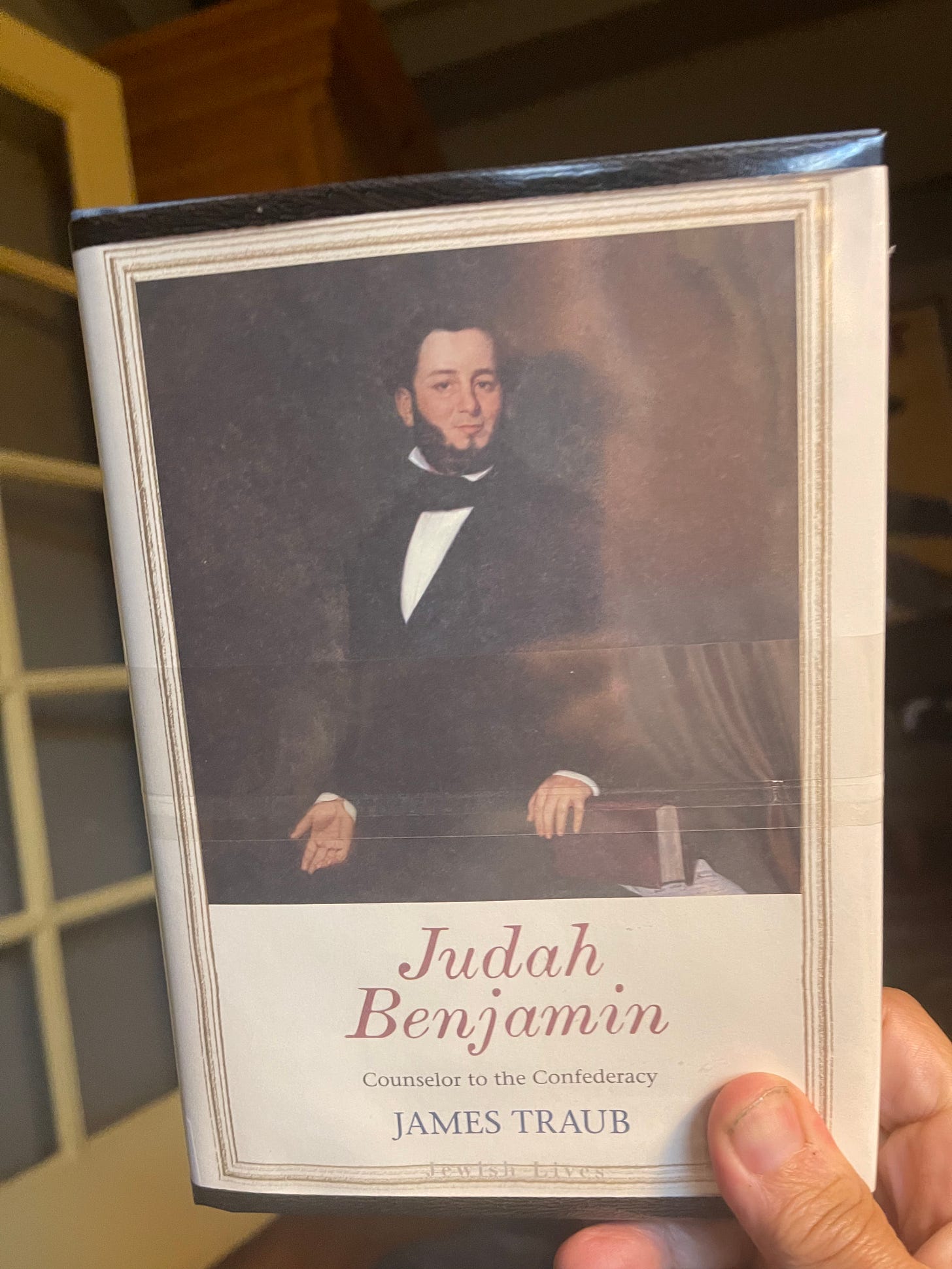Books: “Judah Benjamin: Counselor to the Confederacy” by James Traub
Judah Benjamin remains a peculiar and controversial figure in American history: a Jew who defended the Confederacy and the institution of slavery. James Traub’s new biography, “Judah Benjamin: Counselor to the Confederacy” fleshes out the portrait of a man hitherto regarded as little more than a historical oddity.
Born in St. Croix in 1811, young Judah and his family moved to Charleston, South Carolina, which at the time had one of the largest Jewish populations in America. His shopkeeper parents were able to send him to Yale, where he mysteriously lasted only a semester. Judah then moved to New Orleans, where he worked as a clerk in a law firm and was eventually admitted to the bar in 1832.
Energetic and good-looking, Judah was clearly a man on a mission. He purchased a plantation outside the city and became a sugar planter, a year-round effort which was accomplished entirely by Judah’s slaves. At the same time, his star was rising in the legal world. Because of his erudition, charm and ability to speak and read several foreign languages, he caught the eye of local and national politicians and became the US senator from Louisiana in 1853.
As the Civil War approached, Judah threw in his lot with the Confederate rebels, soon becoming the indispensable aide-de-camp of the delusional Jefferson Davis. Davis first named Judah Secretary of War, and later promoted him to Secretary of State. In the latter role, he tried to convince France and the UK to side with the South but met with no success. As the Confederacy collapsed in 1865, he fled the country rather than face imprisonment and wound up in London, where he achieved acclaim as a barrister before dying in 1884.
Traub points out that even though Judah refused to convert to Christianity, his Jewish faith was not very important to him. He believes Judah’s alignment with the South and with slavery was more a matter of accommodating the principles of his Southern neighbors, which included their belief in “states rights.” Even to his dying breath, however, Judah continued to believe in the “Lost Cause” and the superiority of the white race.
Fast forward to 1948, when the city of Charlotte, North Carolina erected a monument to Judah, commemorating his visit during the Civil War. In 2017, the Jewish community agitated to have the piece removed. After it was defaced during Black Lives Matters demonstrations it was removed by city officials in 2020. As Traub writes out: “Benjamin’s memory serves chiefly as an affront.” And a compelling reason to read more about this curious figure in American history.


Thanks. Mighty interesting.